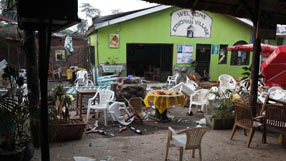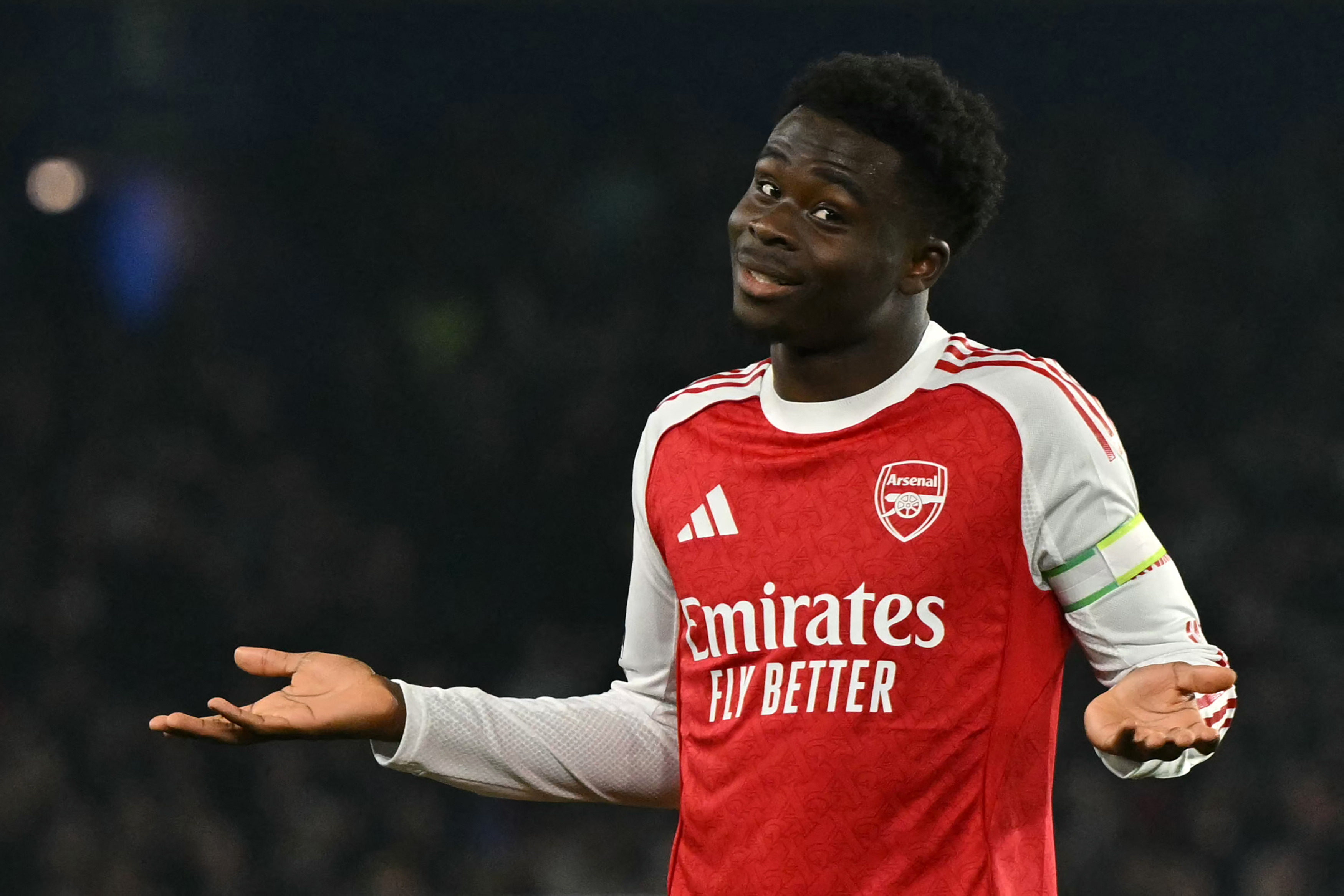
The best features, fun and footballing quizzes, straight to your inbox every week.
You are now subscribed
Your newsletter sign-up was successful
Want to add more newsletters?
Join the club
Get full access to premium articles, exclusive features and a growing list of member rewards.
Spain returned to a heroes' welcome in Madrid, where they met King Juan Carlos before a victory tour around the city, after lifting the trophy for the first time with a last-gasp goal from Andres Iniesta that broke Dutch hearts.
"You are an example for new generations for your effort and the spirit you showed in overcoming the odds," the King, who had been unable to attend the final on doctors' orders after an illness, said in the Royal Palace. "You made our best dreams come true."
Afterwards, the team met Prime Minister Jose Luis Rodriguez Zapatero, who was also unable to make it to Soccer City stadium, before setting off round the streets of the capital in an open-topped bus.
The players wore red T-shirts with "world champions" emblazoned across the front, waved flags, and took photographs and videos of the red-and-yellow sea of fans lining the pavements, while music thumped out from huge speakers.
Spanish media hailed the players as a golden generation who had won by sticking to their classy precision passing despite a ferociously physical Dutch challenge. In the Netherlands, the mood was subdued after their third World Cup final defeat.
South Africa basked in pride at pulling off a highly praised tournament despite years of reports that it would be ruined by violent crime, chaos and incomplete stadiums.
Analysts say the tournament and its stunning stadiums would rebrand not just this country but Africa for investment and tourism, but the image was marred by two bomb attacks against World Cup viewers at a restaurant and rugby club in Kampala that killed 74 fans.
The best features, fun and footballing quizzes, straight to your inbox every week.
Somali Islamist militants claimed the attacks as punishment to Uganda for sending peacekeeping troops to their country.
FIFA President Sepp Blatter condemned the bombings and said he hoped soccer could be a force for good in the world.
"I am very sad...I can only deplore what has happened," he said.
INCOMPLETE PREPARATIONS
Blatter said South Africa, which a year ago had been criticised for incomplete preparations, had won his highest possible mark of nine out of 10.
"Africa has proven that really they can organise this World Cup... they can be proud," Blatter told a news conference.
But he acknowledged that the final had fallen short of the best quality because of the rough play, which resulted in a World Cup final record of 13 yellow cards from English referee Howard Webb, who also sent off defender John Heitinga. He was fiercely criticised by players from both sides.
More than 100,000 people had watched the game on open air screens in scorching heat in Madrid and many shed tears of joy or went hoarse with screams of delight.
Football's ruling body said a record 15.6 million Spaniards, or nearly 80 percent of television market share, watched and the figure was 90 percent in the Netherlands.
South Africans swelled with pride at a tournament where they continued to pack stadiums despite being the first host nation eliminated in the group stage. FIFA said nearly 3.2 million spectators att
 Join The Club
Join The Club










